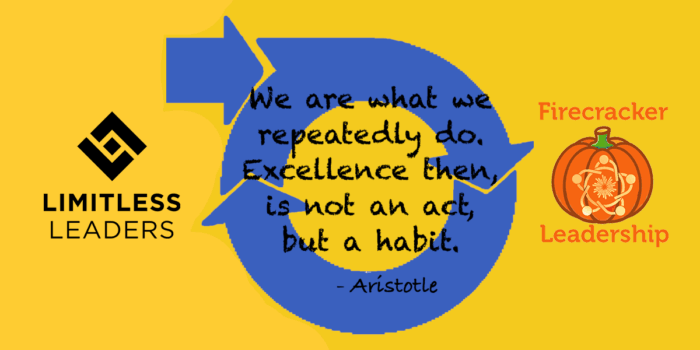Are you prepared to lead in the new year? Here’s something to think about.
The workforce has evolved tremendously since the onset of the pandemic, and the pace of change isn’t showing signs of slowing down. Leaders are constantly in the position of having to reevaluate strategies and rethink decisions on the fly.
With the new year right around the corner, now is a great time to take a moment to pause and reflect on your leadership style and your goals. This is especially true for new entrepreneurs who are just charting their course–how are you going to define your leadership style?
American Express’s new video series Business Class: The Series spotlights candid, real-world business lessons from well-known entrepreneurs, taking viewers on a journey across the world and spanning industries–from fashion to fitness, design, and more–in episodes that cover topics such as marketing, leadership, and finance.
These entrepreneurs have not only risen to the top of their fields but have led their teams through major changes over the past two years. Here are some highlights from those conversations to help small-business owners thrive in 2022.
Embrace Innovation
When asked for the best advice for leaders going into 2022, the CEO and founder of ClassPass, Payal Kadakia, emphasizes the importance of innovation and adaptability. She predicts that the accelerated rate of innovation that’s been spurred on by the pandemic across nearly every industry will continue and says that forward-thinking leaders will need to be ready to “think bigger, adapt, and change as the world around us continues to transform.”
Value the Small Wins
In the thick of this challenging business environment, potter and designer Jonathan Adler advises that leaders remember to value the small wins: “It’s a fraught time. Businesses and leaders are facing challenges that no one could have ever imagined. It may not be bold, but my advice is to forget sweeping change and instead focus on incremental successes. My career isn’t so much about a big break or singular great idea as it is about making a series of decent decisions–and some indecent decisions, too!–over the course of the past 28 years.”
Build Connection Through Empathy
Meanwhile, founder and designer Rebecca Minkoff suggests investing time exploring the needs of employees to set them up for success–especially amid periods of fluctuations like the one we’re experiencing now. She emphasizes empathy, vulnerability, and “truly leaning more into what employees need to thrive” as ways to create connection and a compelling people-first culture that takes into account the whole human experience, above and beyond the workplace.
Recognizing that your employees are living through turbulent times and helping them avoid burnout is a crucial part of this empathetic approach. “People are losing steam and burning out in ways we’ve never seen before,” explains Suneel Gupta, the host of Business Class: The Series, author of the best-selling book Backable, founder of health care upstart RISE, and a Harvard University visiting scholar. “In 2022, leadership won’t be defined by your ability to manage talent, but by your capacity to build people’s energy. This goes beyond a loose vacation policy. Being a steward of energy means tuning into where your people are emotionally, and skillfully knowing when to push the limits versus creating space for replenishment.”
People want to work for empathetic leaders, and the presence or absence of those qualities can play a large role in employee loyalty. We’re living through the “Great Resignation,” with a widespread talent shortage, which makes practicing a human-first approach more important than ever for leaders who wish to develop strong and long-lasting relationships with their employees. Jonathan Adler echoed this sentiment noting, “In 2022, as in 1992 when I was forming my company, the key is to be nice to your employees and they’ll be nice to you. My team is a family of outsiders, and I see them as people first and employees second.”
But before leading others, entrepreneurs must first learn to lead themselves, counsels Payal–and that includes gaining a strong sense of self-awareness and identifying the “why” of your business, which will allow you to be unwavering in your commitment toward your goals.



